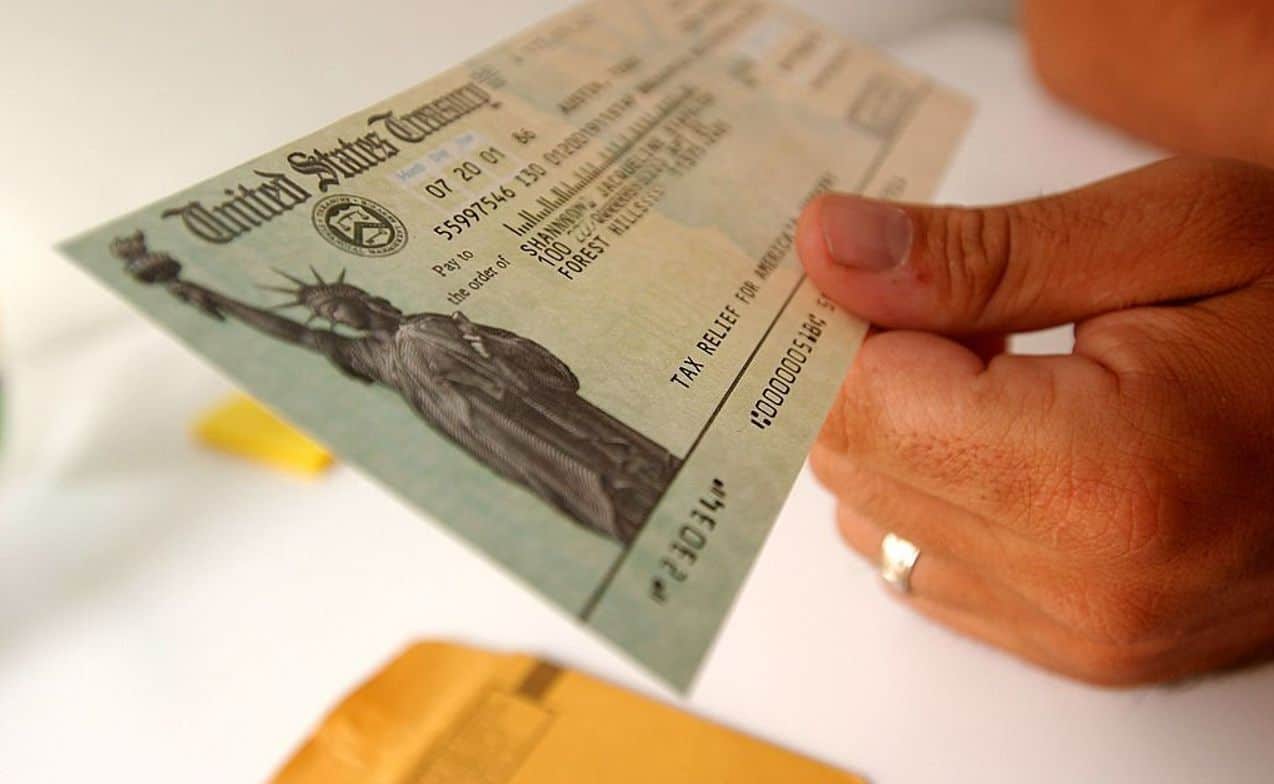It’s not too late to apply for a third stimulus payment of up to $1,400 per person.
Eligible taxpayers who did not get the payment or who may be due more money than they received can seek a tax credit by April 18 on their 2021 federal tax return.
Last spring, the great bulk of the third stimulus payments were automatically deposited into taxpayers’ bank accounts or sent to them. The payments were approved by the American Rescue Plan in March 2021, and were intended to assist those who were experiencing financial hardship as a result of the Covid-19 pandemic.
Last year, though, the payments were computed using the most current federal tax return on file at the time. In 2021, a taxpayer’s income or family size may change, making him or her eligible for extra money.
Others may have lost out entirely on the stimulus payout. Those with earnings so low that they are exempt from filing taxes may have never gotten their payment since the IRS did not have their information.
What is the value of the third stimulus payments?
Up to $1,400 per individual is available in the third round of stimulus payments. For example, a married couple with two children can earn a maximum of $5,600.
Families are eligible for up to $1,400 per dependent, regardless of age. Payments to dependents under the age of 17 were limited in previous rounds.
Low- and middle-income Americans and permanent residents of the United States are generally eligible for a full or partial third-round stimulus payment.
Individuals with an adjusted gross income of less than $75,000, heads of households (such as single parents) with an income of less than $112,500, and married couples with an income of less than $150,000 are all eligible for the full $1,400.
However, when household income rises, the payments will gradually decrease. Individuals with an adjusted gross income of at least $80,000 per year, heads of households with an income of at least $120,000, and married couples with an income of at least $160,000 per year are not eligible for any money, regardless of how many dependents they have.
Payments are not available to undocumented immigrants who do not have a Social Security number. However, their spouses and children are eligible if they hold Social Security numbers.
Who could get more money?
Those who made less money in 2021 than they did in the previous year may be able to get more money from the third round of stimulus payments.
According to the IRS, these include single filers with incomes exceeding $80,000 in 2020 but less than this amount in 2021; married couples filing a joint return with incomes exceeding $160,000 in 2020 but less than this amount in 2021; and head of household filers with incomes exceeding $120,000 in 2020 but less than this amount in 2021.
Individuals and families that welcomed a child into their lives in 2021, whether through birth, adoption, or foster care, may be eligible for additional funds. Families with an additional type of dependent, such as an aging parent or grandchild, may be eligible as well.
Taxpayers can claim the payment on their returns as follows:
Those who believe they are owed extra money must file a 2021 tax return and claim the Recovery Rebate Credit, even if they don’t usually file taxes. If a taxpayer is entitled for additional money, it will be applied to either reducing any tax owed in 2021 or being included in a tax refund.
A taxpayer will require information from an IRS letter written within the last several months in order to claim the Recovery Rebate Credit. Letter 6475 certifies whether or not a taxpayer received a third stimulus payment, as well as the amount. Alternatively, you can get such information by logging into your IRS online account.
The deadline for most taxpayers to file their federal tax returns is April 18, however residents of Maine and Massachusetts get an extra day. Taxpayers who are having trouble meeting the deadline can use Form 4868 to request an automatic six-month extension.
